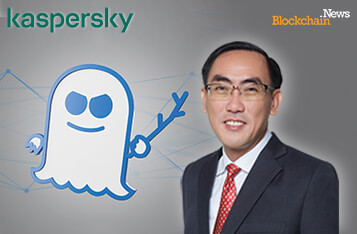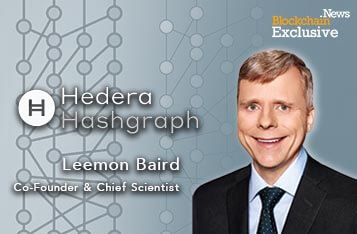Search Results for "fault-tolerant quantum computers"
Quantinuum Secures $300 Million in Landmark Quantum Computing Funding Round
Quantinuum secures a significant $300M equity fundraise at a $5B valuation, led by JPMorgan Chase, Mitsui, Amgen, and Honeywell, marking a major stride in the quantum computing sector and boosting development of fault-tolerant quantum computers.
IBM Opens Quantum Computation Center in New York
On September 18th, IBM announced the opening of the IBM Quantum Computation Center in New York State which will house the world's largest fleet of quantum computing systems for commercial and research activity that exist outside of an experimental lab environment.
Google’s Quantum Technology Could Satiate Proof-of-Stake Detractors
Google’s newly achieved ‘Quantum Supremacy’ computing technology has been marked for some surprising applications in the cryptocurrency space. According to one researcher on the project, the technology could enhance the proof-of-stake (PoS) algorithm.
Italian Authorities Bust Illegal Ethereum Mining Activities Using Airport Computers
Airport officials working at Italy’s Lamezia Terme International airport have nabbed a 41-year-old technician for unlawfully mining Ethereum using the airport computers.
Bitcoin's Correlation with S&P 500 at a Nine Year Peak, says Quantum Economics Founder Mati Greenspan
Mati Greenspan, founder of Quantum Economics believes the coronavirus pandemic has brought Bitcoin closer to the S&P 500 than ever before.
PowerGhost: The Mining Malware to Watch in 2020
In Part 3 of the interview, Yeo Siang Tiong, General Manager for Southeast Asia, Kaspersky shared with us the state of cryptocurrency mining malware and he believed we should watch out for Powerghost in 2020! Yeo also explained the cybersecurity solutions of Kaspersky on quantum computing.
How Do Hackers Use Excel Files to Compromise Your Computers?
We do not recommend users to open excel (especially excel files among other office format files) from an unknown source. Hacker can gain full control of your computer, including the access of all files, screenshots, your web camera and all information typed by your keyboard!
Hedera Hashgraph Chief Scientist Dr. Leemon Baird—Defeating the Byzantine Generals and Bringing a Layer of Trust to the Internet
In our exclusive interview with Hedera’s Chief Scientist and Co-Founder Dr. Leemon Baird, Blockchain.News gets the details on how Hedera Hashgraph achieves Asynchronous Byzantine Fault Tolerance, the growing Hedera Governing Council and the use of the Hedera Hashgraph DLT to prevent coupon fraud.
Is Ethereum's Move to PoS Really an Upgrade?
Proof-of-Work is a solution to the Byzantine Generals' Problem. Ethereum's move to PoS looks more like a downgrade into previous solutions that Satoshi Nakamoto tried to avoid.
Mati Greenspan Shocked by Ripple’s XRP Token’s Circulating Supply Up by 26% this Year
Mati Greenspan, the founder of analytics firm Quantum Economics expressed his disbelief that the circulating supply of Ripple’s XRP token has increased by 26% this year.
Two Massachusetts Men Arrested And Charged To US Court For Supposed Social Media Frauds And Crypto Theft
Two Massachusetts men had been arrested and charged to court on account of stealing victims' social media accounts and cryptocurrency through swapping their sims, hacking their computers, and other nameless techniques.
Cardano’s Shelley Mainnet Set to Launch, ADA Price Predictions are High
The third-generation blockchain Cardano is making some promising strides with its development plan as it matures into its more decentralized “Shelley Era.”











